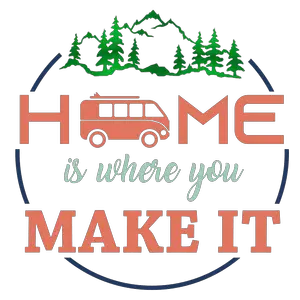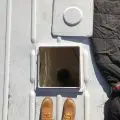Hey! This site is reader-supported and we earn commissions if you purchase products from retailers after clicking on a link from our site.
As a full-time RVer, I have come to accept many ways in which various states regulate the way in which RVers can pull other vehicles behind their rig. As a rule, most anyone with a class A or class C motorhome can pull a personal vehicle, boat trailer or even a towable camper behind them if that towable fits into their weight class and length or hitch restrictions. The same can be said for class B vehicles as well. In this article, I’ll share with you my top three priorities to understand when towing another vehicle or trailer behind your rig.
Understand the laws or vehicle codes
Many of my friends routinely tow there personal vehicle behind their motorhome and some of them even tow an enclosed trailer that accommodates their personal vehicle, a golf cart or motorcycles and bicycles. If they are within their jurisdiction where they have licensed their RV, then they will have no issues. However, issues can arise if they don’t understand the laws of other states that they made traveling through.
For example, in my home state of Michigan, it is illegal to pull a trailer behind a trailer unless the towing vehicle is attached by a locking pin or 5th wheel. In other words, I can pull my 5th wheel camper and a boat trailer, another camper or tow a personal vehicle behind me as long they are limited to only two hitches and they remain under the total length of 72 feet.
However, my neighboring state of Minnesota allows people to attach an additional trailer to their bumper mount or frame mounted trailers and pull them legally within their jurisdiction. What happens when they come into Michigan? They get stopped and cited for violations.
In fact, I have seen the authorities in Michigan insist that the vehicle and the towable be separated until the owner can retrieve it or arrange for someone else to retrieve it on their behalf. Is that wrong?
Maybe or maybe not. Different states have different motor vehicle code statues. In short, you need to understand the vehicle codes of the states you are traveling through. I once saw a guy pulling a camper behind his pick-up truck and he had a small fishing boat on a trailer attached to the trailer. Was it legal?
Yes, in Minnesota…no in Michigan. Understanding the laws of the states you travel through while towing a vehicle or trailer with your RV is probably the most important tip I can give you.
Weight
As a responsible RV owner, you need to understand the weight of your vehicle, have knowledge of your tow vehicle weight, and be knowledgeable of the weight that’s put upon your tongue or hitch. Too much weight on a hitch can be catastrophic if your tow vehicle’s hitch isn’t rated to pull that kind of weight.
Length
The overall length of your rig is another factor to keep in mind when traveling with a towable behind your motor home. In most states 72’ feet in the maximum length for any vehicle. However, if you are touring around in your RV full-time and its long rig, it’s likely that you’ll have issues.
For example, many roadways, turnpikes and city streets in the New England area of our country were designed over three hundred years ago. Nobody had a horse-drawn rig that was too long to make the turn around the corner. Understanding the length and turning radius of your RV is one of the most important things to keep in mind when you travel.
In other words, don’t get yourself into a “pickle”. I once saw an RVer pull his Airstream trailer behind a restaurant located on a bay where most patrons were directed to park. He had to make a wide turn to make the entrance and then when he descended the ramp into the parking area he was stuck. He couldn’t turn around and exit the way he came into the lot. Instead he had to follow the drive out of the restaurant and that turn at the top of the ramp and onto the roadway was too tight for his length. He made the turn, but he did a couple thousand dollars of damage to his RV because its right side scraped up to a historic stone wall that was over 200 years old.
Final words
Always understand the limitations of your RV my friends. Understand its weight, its height, its length, and its towing capacities whenever you are on the road and most importantly, understand the rules of the road of whatever jurisdiction you are traveling through.
As always my friends, thanks for following along and I hope to see you on the road sometime.
As long as you’re searching for tips on driving and towing, check out a few of our other articles as well.




